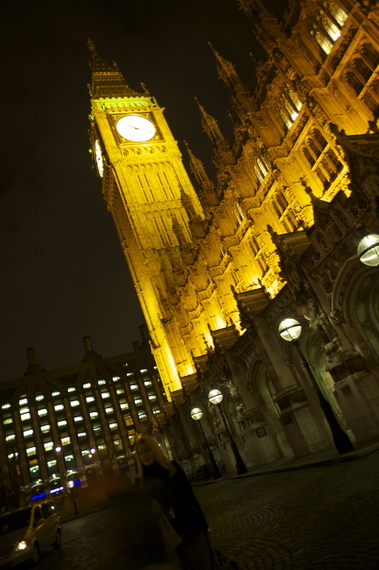The logic behind it seemed so impeccable: "If New York can manage six local TV stations, the idea that London cannot sustain one is bonkers". Thus, former British Culture Secretary Jeremy Hunt launched a string of local TV stations for the UK.
The most promising and most lucrative of those was the franchise for London that was picked up by billionaire Evgeny Lebedev, owner of the Independent and Evening Standard newspapers.
And yet, now it seems that perhaps London cannot in fact sustain one single commercial local TV station. London Live, Evgeny Lebedev's newly launched local TV station for London has just applied to OFCOM, the government organization that controls television, to substantially reduce the amount of programming it is required to produce, just four months after going on air.
This is not a good sign for London Live.
Having been part of the launch of Channel One, another attempt to capture the vast and seemingly rich prize that a successful local TV station in London would seem to offer, allow me to make the following observations:
London Live is failing, and is seemingly destined to fail. Its morning show "Wake Up London" averages 2,400 viewers. It would be cheaper to put that adverts on a DVD and pay people £100 each to watch them.
London Live is in such deep trouble because it is but a pale imitation of American local TV, which peaked around 1982. Hardly anyone watches local American TV news today, so why would London be any different?
Given the rather unique opportunity to be offered such an amazing platform as a 24-hour local broadcast frequency for London and its 8.3 million people, the management at London Live decided to spend millions of pound re-creating television from the 1980s. This was a crazy thing to do, but predictable, as it was a safe and very well known path.
What could they have done differently? (What could they do differently now?)
Television is a child of technology. Without technology, there is no television. And that technology, such as it is, tends to militate for what the content looks like and how it will be produced. In a world in which broadcast quality cameras cost £50,000 each and broadcast quality editing suites cost £500,000, television is both expensive and complex to produce. There are few cameras, they are in the hands of the 'professional' producers and, being so expensive, everyone is quite nervous about making a mistake, so they replicate what they have seen before. It works. Sort of.
The problem, of course, is that (clearly) that no one wants to watch it. The viewers have spoken. The reason no one wants to watch it is because although it is still 1982 for the producers at London Live, it is 2014 for the rest of London.
And what does 2014 mean, in the media world? What technological change has so shifted the landscape?
Let's take a look at the most successful and powerful of the 'new' (read this as Internet based) media companies of the past few years.
Facebook - current valuation $195.5 Billion
Twitter - $22.49 Billion
Instagram sold for $1 billion
YouTube sold for $1 billion
The list goes on and on...
Now, what do all these 'new' media companies have in common?
100 percent of their content is what we would call 'User Generated'.
All of it.
It would seem to work pretty well.
(You might also make the same observation for eBay, Airbnb, Tripadvisor, etc, etc...)
Now, back to that thing about technology creating the DNA of media companies.
When The BBC was launched, the 'machinery' to create broadcast content (radio, then TV) was both complex and expensive.
Do you have an iPhone (or other smart phone ) in your pocket? There are an estimated 1.5 billion smart phones in the world, or 1 for every 5 people. Even under the most conservative estimates then, there should be 1.6 million smart phones in London. (Probably more, as this is a fairly sophisticated city, but let's go with the 1.6 million phones).
While conventional media companies tend to look at smart phones little screens where you can watch their adverts, what they are, actually, are tiny yet very sophisticated TV production studios -- in your pocket.
That's right. You have, in your pocket right now, a broadcast quality video camera, the capacity for editing software and the ability to upload and transmit for free.
That's pretty good.
My guess is that London Live probably had about a dozen 'camera crews' to cover the city. That is pretty anemic compared to 1.6 million camera crews, in the hands of 1.6 million 'producers' and 'reporters'.
So London Live could have tapped into this massive potential of content creators (as Facebook, Instagram, Twitter et al have done so successfully). They could have, but they did not.
They did not because they saw themselves as a 'local TV channel', a very 1982 animal - very much headed to extinction.
Can they re-invent themselves as a 21st Century media company?
Could be...
But I doubt it.
Which is too bad, because the potential to create a kind of local Facebook, with a broadcast platform has limitless potential.
Well, someone will probably come along and do it some day.
Maybe.

